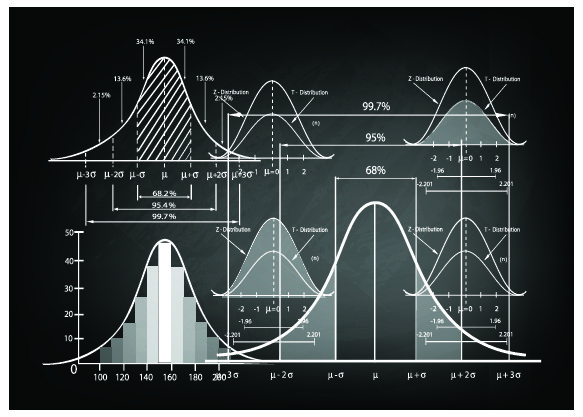Law school exams require a unique method of studying that can seem overwhelming at first. However, understanding the timeline, methods, curve, and resources available to you can turn a frightening prospect into an enjoyable challenge.
 Outlining
Outlining
Outlining is a method of studying that focuses on synthesis and repetition. At its core, it requires combing back over your notes and any available class material and collating it into a single document. If you have been taking effective notes throughout the semester, this process is much easier. A truly comprehensive outline can easily number over a hundred pages.
However, the goal of an outline is to be an easy reference source during an exam, since many exams are open-book and you don’t want to waste your time flipping through a heavy casebook. Once the initial draft is completed, you review it and condense it down, removing extraneous and repetitive information to create a manageable outline of approximately forty to sixty pages that you use on the exam. Some students go even further and do a second review, creating an “attack outline” of around twenty pages.
 There are three keys to creating a successful outline. The first is to create a practical, intuitive, and easily searchable system of headings and text. Being able to easily locate information saves valuable time during an exam, and having the rules and facts of a case conveniently laid out will make your writing clearer. Your syllabus is a handy place to start, as the way your professor has structured the course will typically indicate how they want you to think about the material.
There are three keys to creating a successful outline. The first is to create a practical, intuitive, and easily searchable system of headings and text. Being able to easily locate information saves valuable time during an exam, and having the rules and facts of a case conveniently laid out will make your writing clearer. Your syllabus is a handy place to start, as the way your professor has structured the course will typically indicate how they want you to think about the material.
The second is to combine your notes steadily over the course of the semester. This will create a much more robust document than trying to pore over all your notes from the semester at once. However, there is no benefit to beginning the outlining process in earnest before you have a substantial portion of the course under your belt, as you will not yet be able to see how different doctrines relate to each other. It can take up to a week to create a comprehensive outline for a course, and it is ill-advised to attempt the feat in less than four days. As a general rule of thumb, you should not begin outlining until after Halloween. Under no circumstances should you begin outlining before you turn in your major LARW assignment for the semester.
The final key is to actually create your outline yourself. Every professor teaches a subject differently, and commercial outlines and outlines donated by older students may not cover the same material. It is only through creating your own outline that you will be able to find the gaps in your knowledge and patch them up. There is, of course, nothing morally wrong with using another outline to supplement your own in a pinch, but students tend to perform better in classes for which they created their own outlines. Additionally, professors may prohibit the use of materials you didn’t create yourself on the exam, and breaking that rule can result in an Honor Code violation.
Grades
Duke Law grades on a strict curve with a median of 3.5. This means that for every grade given above a 3.5, one must be given below a 3.5. This leads to a roughly bell-shaped distribution, where many students are clustered around the median. This can seem frightening (and it is), but there are several factors to keep in mind.
 The curve has a purpose beyond simply assessing your relative knowledge of the material—it is designed to protect students from discrepancies among professors. Since each professor teaches their courses differently, they each have different grading methodologies. Having a class with a harsh grader could tank your GPA without a curve to normalize the results.
The curve has a purpose beyond simply assessing your relative knowledge of the material—it is designed to protect students from discrepancies among professors. Since each professor teaches their courses differently, they each have different grading methodologies. Having a class with a harsh grader could tank your GPA without a curve to normalize the results.
There is nothing shameful about scoring at or below median. Getting into Duke Law was the hard part, and you wouldn’t be here if you couldn’t stand on your own. You’re competing against some of the brightest students in not only the country, but the world, and you’ve already earned your place among them. Furthermore, it is natural to take more easily to some subjects than to others—someone who excels in Civil Procedure may suffer in Torts, simply because they require different ways of thinking.
Grades have, at best, a limited impact on career outcomes. Employers are much more interested in your narrative and passion for your work than any particular grade on your transcript. Even if your grades are not as stellar as you may have hoped, the career office and public interest office have the connections and experience needed to help you in the job hunt during your time at Duke and beyond.
Study Aids
Upon registering your Duke Law email, it it likely that you will begin to be bombarded with offers for study aids and supplemental materials promising to teach you the secrets to scoring highly on exams. While these guides can be useful and some students swear by them, use them at your own risk—much like commercial outlines, they are no substitute for doing the work yourself and may not accurately reflect the way you learn or the way your professor wants exams formatted. A list of the most well-renowned aids is provided below if you would like to explore them.
The most effective study aid is any material that makes you care about what you’re studying. If you care about the course, you’re more likely to invest time in it and comprehend the connective tissue between topics. Some subjects, like Criminal Law and Torts, provide more naturally engaging narratives. If you’re having trouble connecting with a class, try finding a piece of media that shows how that area of law affects real people. For instance, the 1940 movie “The Grapes of Wrath” illustrates the human impact of property and land ownership.
Another vital study aid is the person sitting next to you in class—unlike commercial outlines, you know for a fact that they were covering the same material as you. Duke Law prides itself on a friendly and collaborative atmosphere, and that extends to the classroom. While you do not have to study in groups, it can be valuable to check your understanding of material against a friend’s. One tried-and-true method is to complete professor-provided practice exams separately and then compare answers with a group, so you can see what issues others spotted that you missed and vice versa. A rising tide lifts all boats.
Law School Study Aids
Barry Friedman’s Open Book: The Inside Track to Law School Success has been recommended by the law school administration in the past, and provides a helpful breakdown of the IRAC (Issue, Rule, Application, and Conclusion) writing methodology recommended for exams and practical writing assignments.
Also known as the “Boat Book” for the illustration of the famous ship Peerless on the cover (you’ll understand why it’s famous once you take Contracts), Chirelstein’s Concepts and Case Analysis in the Law of Contracts is now on its Seventh Edition and has been praised by many law students for its lucid explanation of the sometimes inscrutable language of contracts.
Robert Miller’s Law School Confidential: The Complete Law School Survival Guide: By Students, For Students is one of the better books that provides a whole-of-life approach to law school. Written by a graduate of University of Pennsylvania Law School alongside a dozen law students, this book takes an informal approach to discussing academic success, the job hunt, and how to balance your legal work with your life outside of the law school walls.
If you would prefer a more academic approach, Maximizing the Law School Experience II is a collection of articles by law professors, recent graduates, and practicing lawyers designed to serve as an introduction to the profession of law. It was published in the Stetson Law Review and is accessible at HeinOnline through the link above by signing in through the law library.
Originally written for the Young Lawyers Division of the American Bar Association after the revolutionary structural changes in the practice of law that took place the 1980s, Susan Bell’s Full Disclosure: Do You Really Want to be a Lawyer? provides an intimate account of what the practice of law is actually like. However, it has not been recently printed and may be difficult to find.
Getting To Maybe: How to Excel on Law School Exams by Fischl and Paul is specifically targeted at explaining exam strategy. In particular, it differentiates law school exams from other forms of writing and explores the value of analyzing ambiguous situations in which there may be no “right answer” from multiple angles.
Atticus Falcon (a pseudonym presumably derived from Atticus Finch from To Kill A Mockingbird, with perhaps a splash of Harvey Birdman: Attorney at Law thrown in for good measure) authored the book Planet Law School II. It is comprehensive, and takes a unique perspective on several aspects of law school that are not often discussed in similar guidebooks. However, past Duke Law students have criticized this book for its aggressive and hostile tone, and outright dismissal of some aspects of law school that Duke students have found the most rewarding. The competitive law school environment Atticus describes is fundamentally incompatible with the culture of Duke Law.
Ann Burkhart’s How to Study the Law and Take Law Exams in a Nutshell is divided into two sections. The first covers the law school experience and includes a section on reading and briefing cases, while the second consists of sample exam questions and answers for first-year subjects.
A rare comedic approach to law school study aids, Delaney’s How to Do Your Best on Law School Exams presents seven sample exam questions alongside good and bad answers for each. The true value of this volume lies in the thorough explanations for why each answer succeeds or misses the mark.
The Examples and Explanations Series by Aspen Law & Business, and the Hornbook Series and In a Nutshell Series by West Academic, are smaller volumes designed to distill a particular subject area of law into a more digestible and accessible format, often written by a noted authority on the subject. They are great review aids for discrete areas, and occasionally include practice exam questions. The Goodson Law Library has many different volumes of these resources available on reserve.

